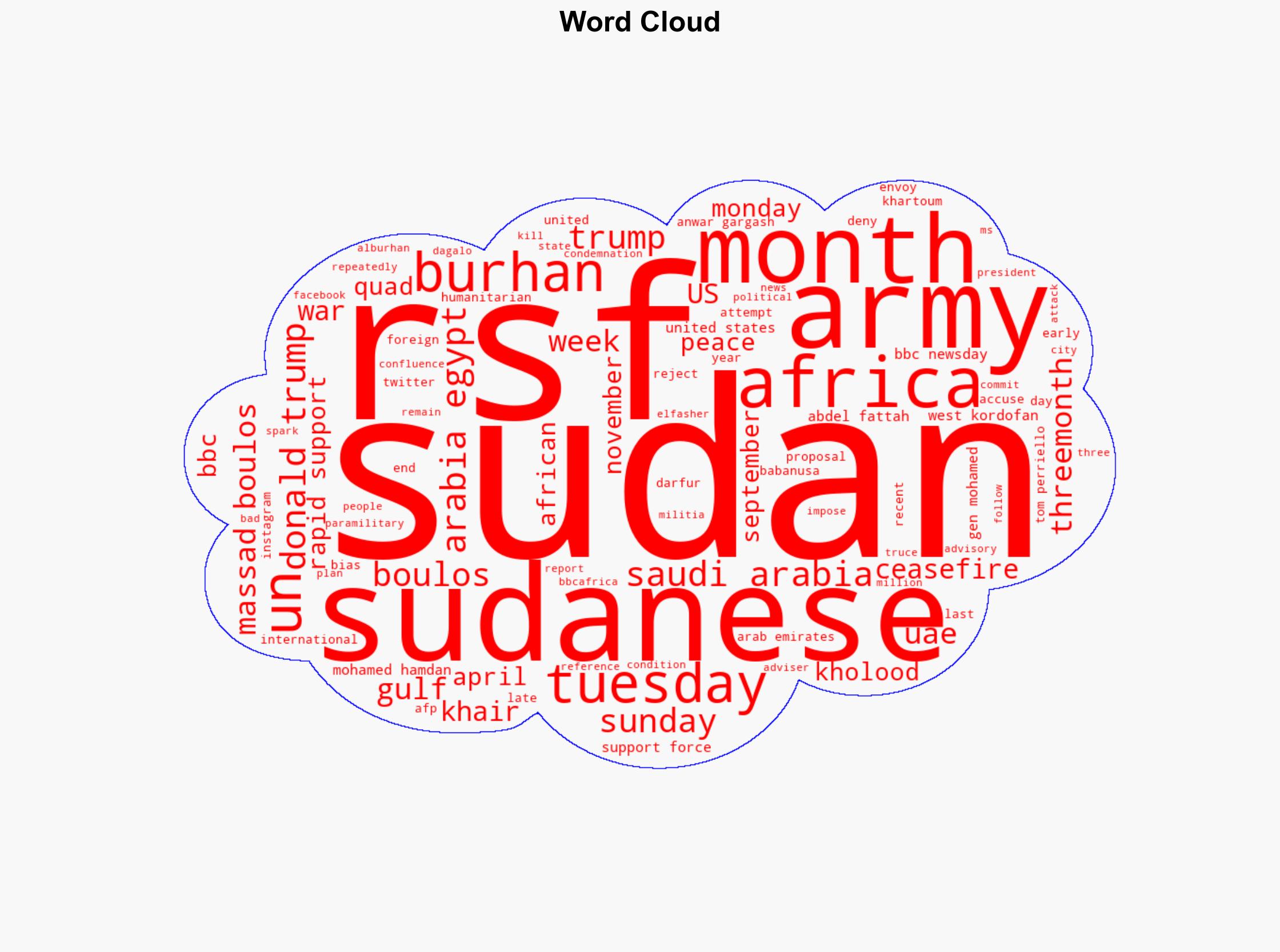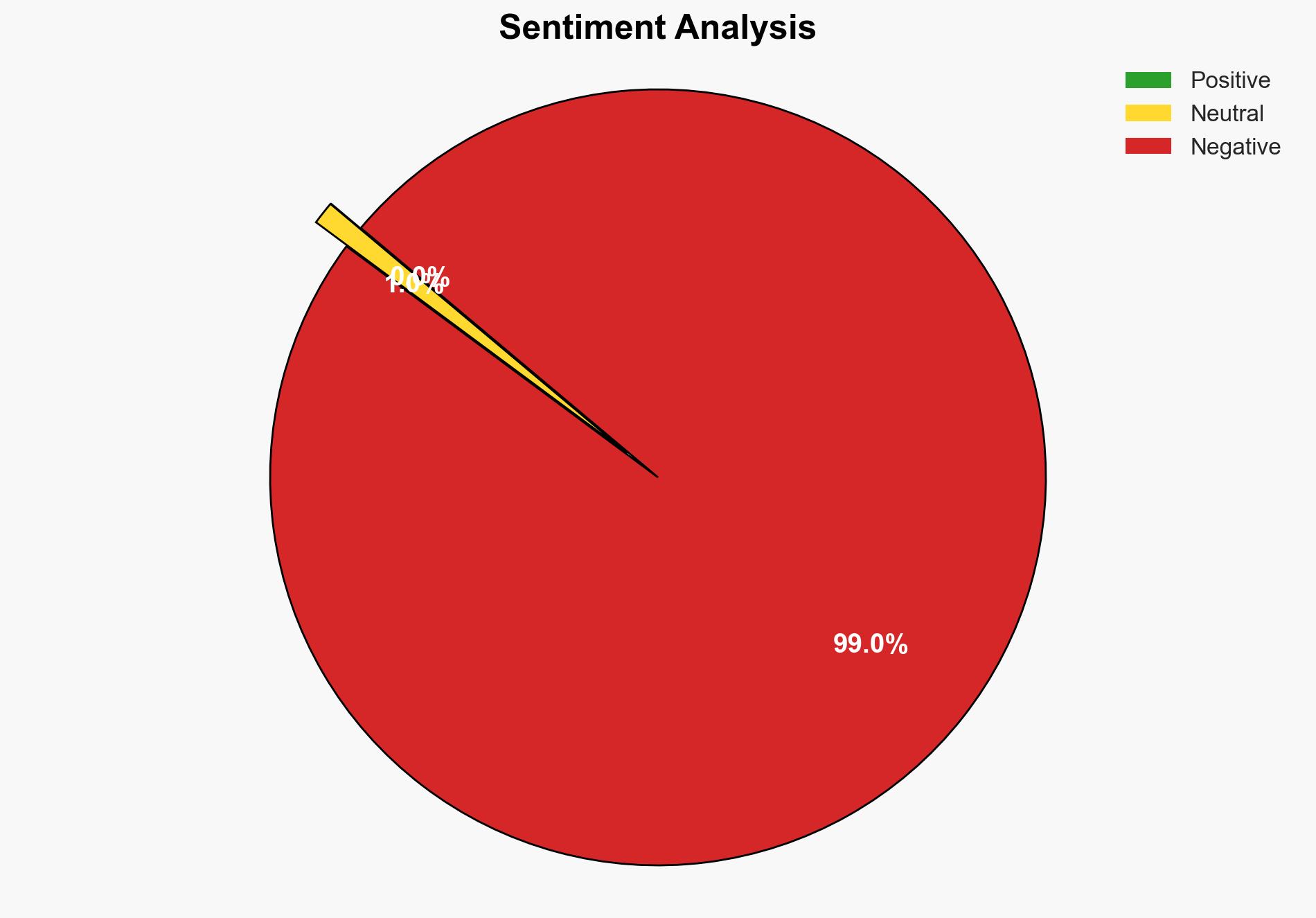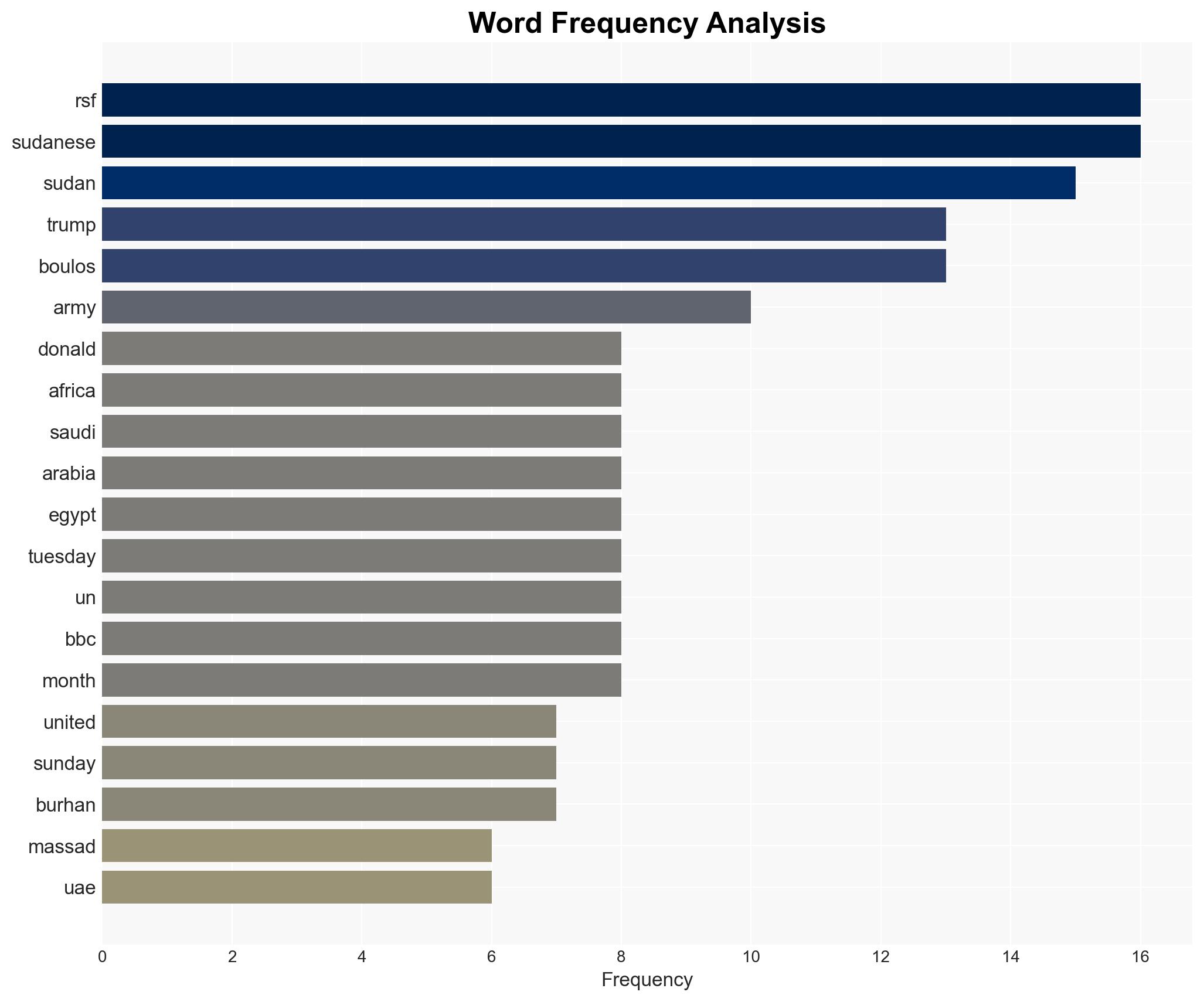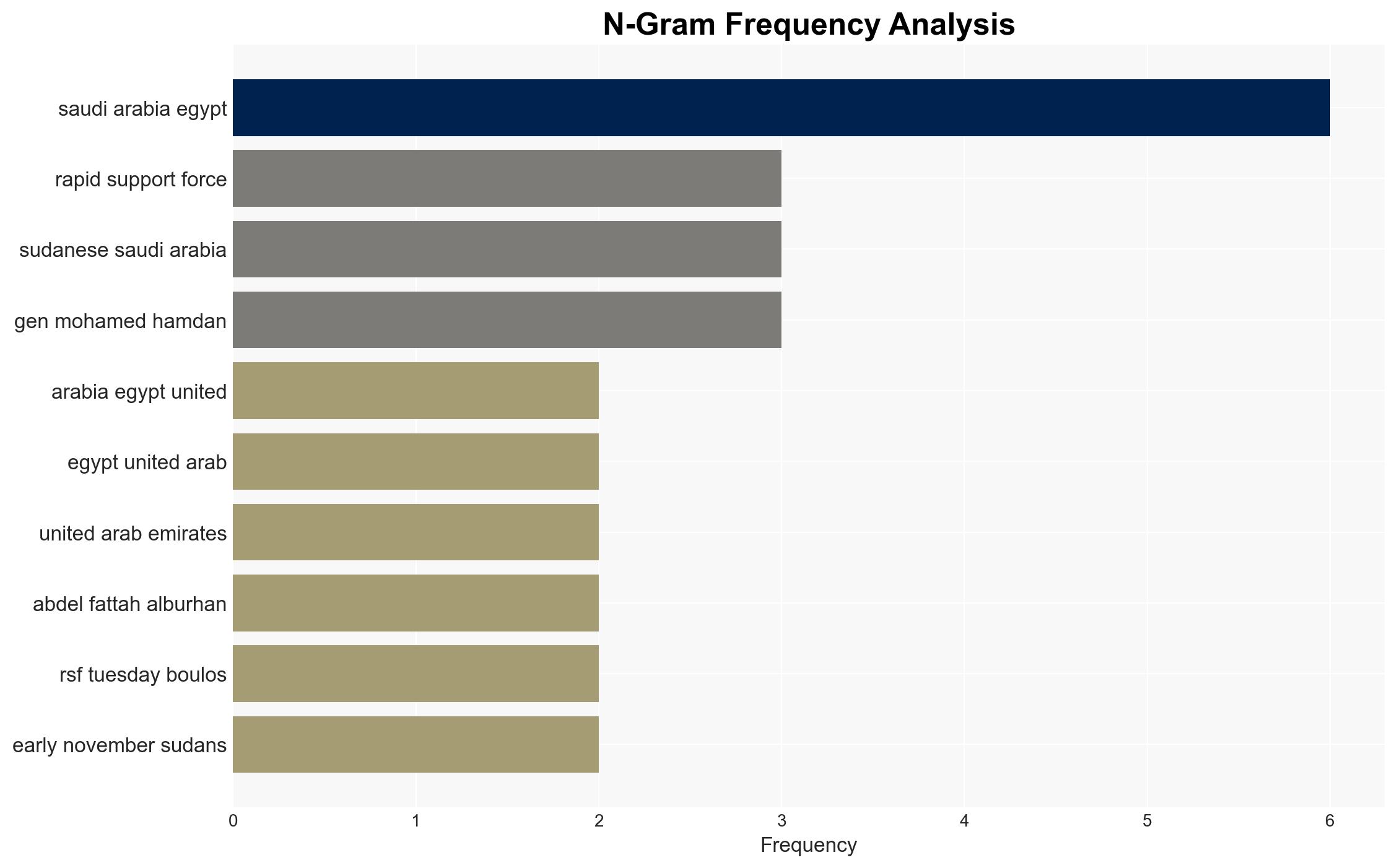Trump envoy denies bias as he pushes for Sudan peace plan
Published on: 2025-11-25
AI-powered OSINT brief from verified open sources. Automated NLP signal extraction with human verification. See our Methodology and Why WorldWideWatchers.
Intelligence Report:
1. BLUF (Bottom Line Up Front)
The most supported hypothesis is that the Trump envoy’s peace plan is perceived as biased due to geopolitical alignments, particularly favoring the interests of Saudi Arabia, Egypt, and the UAE. This perception undermines the plan’s credibility and effectiveness in achieving a sustainable peace in Sudan. Confidence Level: Moderate. Recommended action includes engaging neutral international mediators and ensuring transparency in negotiations to build trust among conflicting parties.
2. Competing Hypotheses
Hypothesis 1: The Trump envoy’s peace plan is genuinely impartial, aiming to end the conflict in Sudan without favoring any party. This hypothesis suggests that accusations of bias are unfounded and possibly politically motivated by those opposing external intervention.
Hypothesis 2: The Trump envoy’s peace plan is biased towards the interests of Saudi Arabia, Egypt, and the UAE, which are aligned with the US. This hypothesis is supported by the rejection of the plan by Sudan’s army chief and the perception of favoritism towards the RSF.
The second hypothesis is more likely due to the consistent rejection of the plan by key Sudanese stakeholders and the historical geopolitical alignments of the involved Gulf states with the US.
3. Key Assumptions and Red Flags
Assumptions: It is assumed that the US has strategic interests in aligning with Saudi Arabia, Egypt, and the UAE, influencing its mediation efforts. Another assumption is that the RSF’s ceasefire declaration is a strategic maneuver rather than a genuine commitment to peace.
Red Flags: The denial of involvement by the UAE in supporting the RSF, despite allegations and evidence to the contrary, raises concerns about transparency and potential deception. The timing of the RSF’s ceasefire announcement, coinciding with international pressure, suggests a possible political ploy.
4. Implications and Strategic Risks
The perception of bias in the peace plan could exacerbate tensions and prolong the conflict, leading to further humanitarian crises. The involvement of external actors like the UAE could escalate regional tensions and destabilize neighboring countries. The risk of misinformation and propaganda campaigns by conflicting parties could further complicate peace efforts.
5. Recommendations and Outlook
- Engage neutral international mediators, such as the African Union or UN, to facilitate negotiations and enhance credibility.
- Increase transparency in the peace process to build trust among conflicting parties and the international community.
- Best-case scenario: Successful mediation leads to a lasting ceasefire and transition to civilian rule.
- Worst-case scenario: Continued conflict results in regional destabilization and a worsening humanitarian crisis.
- Most-likely scenario: Protracted negotiations with intermittent ceasefires and ongoing skirmishes.
6. Key Individuals and Entities
Massad Boulos, Abdel Fattah al-Burhan, Anwar Gargash, Mohamed Hamdan Dagalo (RSF leader).
7. Thematic Tags
Structured Analytic Techniques Applied
- Cognitive Bias Stress Test: Structured challenge to expose and correct biases.
- Bayesian Scenario Modeling: Use probabilistic forecasting for conflict trajectories or escalation likelihood.
- Network Influence Mapping: Map relationships between state and non-state actors for impact estimation.
Explore more:
National Security Threats Briefs ·
Daily Summary ·
Support us





